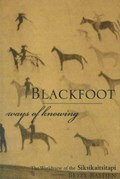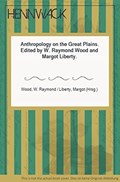Narrow Results By
- Wall Kimmerer, Robin 3
- Webstad, Phyllis 2
- Adese, Jennifer 1
- Allan, Melissa 1
- Auger, Neepin 1
- Baker, Paul E 1
- Barbeau, Marius 1
- Barman, Jean 1
- Bastien, Betty 1
- Black, Liza 1
- Blondin, Walter; Blondin, George; Goose, Leanne; Mountain, Antoine; Stewart, Sarah; Yakeleya, Raymond; and Dene Elders; foreword by Blondin, Walter. 1
- Brown, Chester 1
Honouring the strength of Indian women : plays, stories, poetry
https://archives.whyte.org/en/permalink/catalogue25710
- Medium
- Library - Book (including soft-cover and pamphlets)
- Published Date
- 2019
- Author
- Manuel, Vera
- Publisher
- Winnipeg, Manitoba, Canada : University of Manitoba Press
- Call Number
- 07.2 M31h
- Author
- Manuel, Vera
- Responsibility
- Vera Manuel = Kulilu Pal ki, Edited by Michelle Coupal, Deanna Reder, Joanne Arnott, and Emalene A. Manuel ; introduction by Emalene A. Manuel ; afterwords by Michelle Coupal, Deanna Reder, and Joanne Arnott.
- Publisher
- Winnipeg, Manitoba, Canada : University of Manitoba Press
- Published Date
- 2019
- Physical Description
- xii, 391 pages, 8 unnumbered pages of plates : illustrations ; 22 cm
- Subjects
- Indigenous
- Indigenous Culture
- Indigenous Customs
- Indigenous Art
- Indigenous Peoples
- Indigenous Traditions
- Women
- Ktunaxa
- Secwepemc
- Abstract
- This critical edition delivers a unique and comprehensive collection of the works of Ktunaxa-Secwepemc writer and educator Vera Manuel, daughter of prominent Indigenous leaders Marceline Paul and George Manuel. A vibrant force in the burgeoning Indigenous theatre scene, Vera was at the forefront of residential school writing and did groundbreaking work as a dramatherapist and healer. Long before mainstream Canada understood and discussed the impact and devastating legacy of Canada's Indian residential schools, Vera Manuel wrote about it as part of her personal and community healing. She became a grassroots leader addressing the need to bring to light the stories of survivors, their journeys of healing, and the therapeutic value of writing and performing arts. A collaboration by four Indigenous writers and scholars steeped in values of Indigenous ethics and editing practices, the volume features Manuel's most famous play, "Strength of Indian Women"--First performed in 1992 and still one of the most important literary works to deal with the trauma of residential schools-along with an assemblage of plays, written between the late 1980s until Manuel's untimely passing in 2010, that were performed but never before published. The volume also includes three previously unpublished short stories written in 1988, poetry written over three decades in a variety of venues, and a 1987 college essay that draws on family and community interviews on the effects of residential schools. -- Provided by publisher.
- Contents
- Introduction / Emalene A. Manuel -- Plays. Strength of Indian women -- Song of the circle -- Journey through the past to the future -- Echoes of our Mothers' past -- Every warrior's song -- Stories. That grey building -- Theresa -- The letter -- The abyss -- Poetry. The storm -- Woman without a tongue -- Ghosts & predators -- L.A. Obsession song -- Addictions -- Lies -- Life abuse of girls -- The woman I could be -- Fools -- Loneliness -- Abused mothers, wounded fathers -- Hunger -- The Catholic Church -- Deadly legacy -- Keeping Secrets -- Forgiveness -- When I first came to know myself -- When my sister & I dance -- The girl who could catch fish with her hands -- Two brothers -- La Guerra -- Keepers in the dark -- Inheritance -- For the child who knew -- Never ever tell -- Ottawa -- The truth about colonization -- Justice -- Beric -- Christmas inside of me -- Spring fever -- Megcenetkwe -- Dying -- Afterwords. Narrative acts of truth and reconciliation: teaching the healing plays of Vera Manuel / by Michelle Coupal -- Embedded teachings: Vera Manuel's recovered short stories / Deanna Reder -- "Through poetry a community is brought together": Vera Manuel's poetry, poetry activism, and poetics / Joanne Arnott -- Appendix. Indians and residential school: a study of the breakdown of a culture / Vera Manuel
- Notes
- The "l " in Vera Manuel's (Kulilu Pal ki's) name on the title page appears as the International Phonetic Alphabet symbol for palatoalveolar click.
- ISBN
- 9780887558368
- Accession Number
- 2023.09
- Call Number
- 07.2 M31h
- Collection
- Archives Library
This material is presented as originally created; it may contain outdated cultural descriptions and
potentially offensive content.
Read more.
Blackfoot ways of knowing : the worldview of the Siksikaitsitapi
https://archives.whyte.org/en/permalink/catalogue26211
- Medium
- Library - Book (including soft-cover and pamphlets)
- Published Date
- 2023
- Author
- Bastien, Betty
- Publisher
- Calgary : University of Calgary Press
- Edition
- 9th printing
- Call Number
- 07.2 B29b
- Author
- Bastien, Betty
- Responsibility
- Ju¨rgen W. Kremer, editor ; Duane Mistaken Chief, language consultant.
- Edition
- 9th printing
- Publisher
- Calgary : University of Calgary Press
- Published Date
- 2023
- Physical Description
- xx, 235 pages : illustrations, portraits ; 23 cm
- Subjects
- Blackfoot
- Siksikaitsitapi
- Indigenous
- Indigenous Culture
- Indigenous Customs
- Indigenous People
- Indigenous Traditions
- Indigenous Language
- Abstract
- The worldview of the Siksikaitsitapi is a journey into the heart and soul of Blackfoot culture. In sharing her personal story of coming home to reclaim her identity within that culture, Betty Bastien offers us a gateway into traditional Blackfoot ways of understanding and experiencing the world. As a scholar and researcher, Bastien is also able to place Blackfoot tradition within the context of knowledge building among indigenous peoples generally, and within an historical context of precarious survival amid colonial displacement and cultural genocide. -- From back cover
- Contents
- Context -- Introduction -- Innahkootaitsinnika'topi -- History of the Blackfoot-speaking tribes -- Introductory remarks -- Iitotasimahpi Iimitaiks -- The era of the dog or the time of the ancestors (Pre-eighteenth century) -- Ao'ta'sao'si Ponokaomita -- the era of the horse (eighteeneth century to 1880) -- Ao'maopao'si -- from when we settled in one place (1880) to today -- Cultural destruction -- policies of ordinary genocide -- Tribal protocol and affirmative inquiry -- Niinohkanistssksinipi -- Speaking personally -- Traditional knowledge in academe -- Cultural affirmation -- Protocol of affirmative inquiry -- Affirmation of indigenous knowledge -- Kakyosin -- traditional knowledge -- Kiitomohpiipotoko -- ontological responsibilities -- Siksikaitsitapi ways of knowing -- epistemology -- Knowledge is coming to know Ihtsipaitapiiyo'pa -- Kakyosin/Mokaksin -- Indigenous learning -- Niisi'powahsinni-language -- Aipommotsspistsi -- transfers -- Kaaahsinnooniksi -- grandparents -- Conclusion: renewal of ancestral responsibilities as antidote to genocide -- Deconstructing the colonized mind -- Eurocentred and Niitsitapi identity -- Reflections and implications.
- ISBN
- 9781552381090
- Accession Number
- P2023.25
- Call Number
- 07.2 B29b
- Collection
- Archives Library
This material is presented as originally created; it may contain outdated cultural descriptions and
potentially offensive content.
Read more.
Plants, people, and places : the roles of ethnobotany and ethnoecology in Indigenous peoples' land rights in Canada and beyond
https://archives.whyte.org/en/permalink/catalogue25723
- Medium
- Library - Book (including soft-cover and pamphlets)
- Published Date
- 2020
- Publisher
- Montreal ; Kingston ; London ; Chicago : McGill-Queen's University Press
- Call Number
- 07.2 T85p
- Responsibility
- Edited by Nancy J. Turner
- Publisher
- Montreal ; Kingston ; London ; Chicago : McGill-Queen's University Press
- Published Date
- 2020
- Physical Description
- xxxii, 480 pages : illustrations, maps ; 25 cm.
- Subjects
- Indigenous
- Indigenous Culture
- Indigenous Traditions
- Indigenous Peoples
- Indigenous Customs
- Plants, Edible
- Plants, Medicinal
- Abstract
- For millennia, plants and their habitats have been fundamental to the lives of Indigenous Peoples--as sources of food and nutrition, medicines, and technological materials--and central to ceremonial traditions, spiritual beliefs, narratives, and language. While the First Peoples of Canada and other parts of the world have developed deep cultural understandings of plants and their environments, this knowledge is often underrecognized in debates about land rights and title, reconciliation, treaty negotiations, and traditional territories. Plants, People, and Places argues that the time is long past due to recognize and accommodate Indigenous Peoples' relationships with plants and their ecosystems. Essays in this volume, by leading voices in philosophy, Indigenous law, and environmental sustainability, consider the critical importance of botanical and ecological knowledge to land rights and related legal and government policy, planning, and decision making in Canada, the United States, Sweden, and New Zealand. Analyzing specific cases in which Indigenous Peoples' inherent rights to the environment have been denied or restricted, this collection promotes future prosperity through more effective and just recognition of the historical use of and care for plants in Indigenous cultures. A timely book featuring Indigenous perspectives on reconciliation, environmental sustainability, and pathways toward ethnoecological restoration, Plants, People, and Places reveals how much there is to learn from the history of human relationships with nature"-- Provided by publisher.
- Contents
- Introduction: Making a Place for Indigenous Botanical Knowledge and Environmental Values in Land-Use Planning and Decision Making / Nancy J. Turner, Pamela Spalding, and Douglas Deur (Moxmowisa) -- Living from the Land: Food Security and Food Sovereignty Today and into the Future / Jeannette Armstrong -- Nuuc aan ul Plants and Habitats as Reflected in Oral Traditions: Since Raven and Thunderbird Roamed / Marlene Atleo ( eh eh nah tuu kwiss) -- Tamarack and Tobacco / Aaron Mills -- Xa´xli'p Survival Territory: Colonialism, Industrial Land Use, and the Biocultural Sustainability of the Xa´xli'p within the Southern Interior of British Columbia / Arthur Adolph -- Understanding the Past for the Future: Archaeology, Plants, and First Nations' Land Use and Rights / Dana Lepofsky, Chelsey Geralda Armstrong, Darcy Mathews, and Spencer Greening -- Preparing Eden: Indigenous Land Use and European Settlement on Southern Vancouver Island / John Sutton Lutz -- A Place Called Pi´psell: An Indigenous Cultural Keystone Place, Mining, and Secwe´pemc Law / Marianne Ignace and Chief Ronald E. Ignace -- Traditional Plant Medicines and the Protection of Traditional Harvesting Sites / Letitia M. McCune and Alain Cuerrier -- From Traplines to Pipelines: Oil Sands and the Pollution of Berries and Sacred Lands from Northern Alberta to North Dakota / Linda Black Elk and Janelle Marie Baker -- The Legal Application of Ethnoecology: The Girjas Sami Village versus the Swedish State / Lars O¨stlund, Ingela Bergman, Camilla Sandstro¨m, and Malin Bra¨nnstro¨m -- Ta¯ne Mahuta: The Lord of the Forest in Aotearoa New Zealand, His Children, and the Law / Jacinta Ruru -- Cultivating the Imagined Wilderness: Contested Native American Plant Gathering Traditions in America's National Parks / Douglas Deur (Moxmowisa) and Justine E. James Jr -- Ki¯puka Kuleana: Restoring Reciprocity to Coastal Land Tenure and Resource Use in Hawai i / Monica Montgomery and Mehana Blaich Vaughan -- Right Relationships: Legal and Ethical Context for Indigenous Peoples' Land Rights and Responsibilities / Kelly Bannister -- Ethnoecology and Indigenous Legal Traditions in Environmental Governance / Deborah Curran and Val Napoleon -- Indigenous Environmental Stewardship: Do Mechanisms of Biodiversity Conservation Align with or Undermine It? / Monica E. Mulrennan and Ve´ronique Bussie`res -- Tsilhqot'in Nation Aboriginal Title: Ethnoecological and Ethnobotanical Evidence and the Roles and Obligations of the Expert Witness / David M. Robbins and Michael Bendle -- Plants, Habitats, and Litigation for Indigenous Peoples in Canada / Stuart Rush, QC -- Restorying Indigenous Landscapes: Community Restoration and Resurgence / Jeff Corntassel -- Partnerships of Hope: How Ethnoecology Can Support Robust Co-Management Agreements between Public Governments and Indigenous Peoples / Pamela Spalding -- "Passing It On": Renewal of Indigenous Plant Knowledge Systems and Indigenous Approaches to Education / Leigh Joseph (Styawat) -- On Resurgence and Transformative Reconciliation / James Tully -- Retrospective and Concluding Thoughts / Nancy J. Turner with E. Richard Atleo (Umeek) and John Ralston Saul -- Epilogue: Native Plants, Indigenous Societies, and the Land in Canada's Future / Douglas Deur (Moxmowisa), Nancy J. Turner (Galitsimg a), and Kim Recalma-Clutesi (Oqwilowgwa).
- ISBN
- 9780228001836
- Accession Number
- P2023.13
- Call Number
- 07.2 T85p
- Collection
- Archives Library
This material is presented as originally created; it may contain outdated cultural descriptions and
potentially offensive content.
Read more.
Carrying the burden of peace : reimagining Indigenous masculinities through story
https://archives.whyte.org/en/permalink/catalogue25728
- Medium
- Library - Book (including soft-cover and pamphlets)
- Published Date
- 2021
- Author
- McKegney, Sam
- Publisher
- Regina, Saskatchewan, Canada : University of Regina Press
- Call Number
- 07.2 M19c
- Author
- McKegney, Sam
- Publisher
- Regina, Saskatchewan, Canada : University of Regina Press
- Published Date
- 2021
- Physical Description
- xxxiii, 263 pages : illustrations ; 24 cm
- Subjects
- Indigenous
- Indigenous Culture
- Indigenous Customs
- Indigenous Peoples
- Indigenous Traditions
- Masculinity
- Canada
- History
- Abstract
- Through rigorous engagement with Indigenous literary art, Carrying the Burden of Peace highlights the decolonial potential of Indigenous masculinities. Can a critical examination of Indigenous masculinities be an honour song--one that celebrates rather than pathologizes; one that seeks diversity and strength; one that overturns heteropatriarchy without centering settler colonialism? Can a critical examination of Indigenous masculinities even be creative, inclusive, erotic? Carrying the Burden of Peace answers affirmatively. Countering the perception that masculinity has been so contaminated as to be irredeemable, the book explores Indigenous literary art for understandings of masculinity that exceed the impoverished inheritance of colonialism. Carrying the Burden of Peace weaves together stories of Indigenous life, love, eroticism, pain, and joy to map the contours of diverse, empowered, and non-dominant Indigenous masculinities. It is from here that a more balanced world may be pursued. -- Provided by publisher.
- Contents
- Indigenous masculinities and story -- Shame and deterritorialization -- Journeying back to the body -- De(f/v)iant generosity: gender and the gift -- Masculinity and kinship -- Naked and dreaming forward: a conclusion.
- ISBN
- 9780889777934
- Accession Number
- P2023.15
- Call Number
- 07.2 M19c
- Collection
- Archives Library
This material is presented as originally created; it may contain outdated cultural descriptions and
potentially offensive content.
Read more.
Indigenous media arts in Canada : making, caring, sharing
https://archives.whyte.org/en/permalink/catalogue25729
- Medium
- Library - Book (including soft-cover and pamphlets)
- Published Date
- 2023
- Publisher
- Waterloo, Ontario : Wilfrid Laurier University Press
- Call Number
- 07.2 C54m
- Responsibility
- Edited by Dana Claxton and Ezra Winton
- Publisher
- Waterloo, Ontario : Wilfrid Laurier University Press
- Published Date
- 2023
- Physical Description
- 437 pages
- Abstract
- A timely and crucial collection of essays and conversations focused on Indigenous-settler cultural politics and the ethics of Indigenous representation in Canada’s media arts that explores issues of narrative sovereignty, cultural identity, cultural resistance and decolonizing creative practices. -- Provided by publisher.
- ISBN
- 9781771125413
- Accession Number
- P2023.15
- Call Number
- 07.2 C54m
- Collection
- Archives Library
This material is presented as originally created; it may contain outdated cultural descriptions and
potentially offensive content.
Read more.
Anthropology on the Great Plains
https://archives.whyte.org/en/permalink/catalogue26190
- Medium
- Library - Book (including soft-cover and pamphlets)
- Published Date
- 1980
- Publisher
- Lincoln : University of Nebraska Press
- Call Number
- 07.2 W86a
- Responsibility
- Edited by W. Raymond Wood and Margot Liberty
- Publisher
- Lincoln : University of Nebraska Press
- Published Date
- 1980
- Physical Description
- vii, 306 pages : illustrations ; 27 cm
- Subjects
- Indigenous
- Indigenous Culture
- Indigenous Customs
- Indigenous People
- Indigenous Traditions
- Turtle Island
- History
- Abstract
- Native American tribes living on the Great Plains have long attracted the attention of Euro-American scholars, inspiring over the years a vast quantity of research. The contributors to this volume discuss and evaluate all the major works of scholarship devoted to the culture of Plains Indians, from the arrival of these peoples on the North American grasslands thousands of years ago, through their subsequent Village and High Plains lifeways, to their present-day adaption to reservation and urban life. Toghether, the twenty-two authors undertake a comprehensive survey of the state of anthropology on the Plains: what it has been, what it is now, and what it may offer theory and method in the future. -- From interior dustjacket
- Contents
- The Plains setting / B. Miles Gilbert -- The influence of Plains ethnography on the development of anthropological theory / E. Adamson Hoebel -- The Plains culture area concept / Richard Scaglion -- Prehistoric studies on the Plains / Alfred E. Johnson and W. Raymond Wood -- An overview of Great Plains physical anthropology / David V. Hughey -- Studies in Plains linguistics : a review / Robert C. Hollow and Douglas R. Parks -- Plains trade in prehistoric and protohistoric intertribal relations / W. Raymond Wood -- The ethnohistorical approach in Plains area studies / Mildred Mott Wedel and Raymond J. DeMallie -- Plains economic analysis : the Marxist complement / Alan M. Klein -- Morgan's problem : the influence of Plains ethnography on the ethnology of kinship / John H. Moore -- Social control on the Plains / Garrick Bailey -- The Sun Dance / Margot Liberty -- The Ghost Dance / Omer C. Stewart -- The Native American church / Omer C. Stewart -- Plains Indian art / Mary Jane Schneider -- Plains Indian music and dance / William K. Powers -- Psychological anthropology / Margot Liberty and Robert Morais --The formal education of Plains Indians / Janet Goldenstein Ahler -- Plains Indian women : an assessment / Katherine M. Weist -- Research in health and healing in the Plains / Luis S. Kemnitzer -- Peoples of the Plains / compiled by Douglas R. Parks, Margot Liberty, and Andrea Ferenci.
- ISBN
- 9780803247086
- Accession Number
- 2022.17
- Call Number
- 07.2 W86a
- Collection
- Archives Library
This material is presented as originally created; it may contain outdated cultural descriptions and
potentially offensive content.
Read more.
Decolonizing sport
https://archives.whyte.org/en/permalink/catalogue26241
- Medium
- Library - Book (including soft-cover and pamphlets)
- Published Date
- 2023
- Publisher
- Halifax ; Winnipeg : Fernwood Publishing
- Call Number
- 07.2 F77d
- Responsibility
- Edited by Janice Forsyth, Christine O'Bonsawin, Russell Field, and Murray G. Phillips
- Publisher
- Halifax ; Winnipeg : Fernwood Publishing
- Published Date
- 2023
- Physical Description
- xi, 276 pages : illustrations ; 23 cm
- Subjects
- Canada
- History-Canada
- Education
- Sport
- Indigenous
- Indigenous Culture
- Indigenous People
- Indigenous Traditions
- Indigenous Customs
- Abstract
- The path to decolonization is difficult and complex, and can even be contradictory at times, as when an Indigenous community enlists the same corporate sponsor that will destroy its natural environment to provide sport programming for its youth. There is no easy way forward. The Black Lives Matter movement, and their massive followers on social media, propelled forward discussions about the inequities that Covid-19 highlighted with unprecedented momentum. Indigenous people in Canada voiced their concerns in solidarity, calling attention to disparities they faced in everything from impoverished Indigenous health care initiatives to the overrepresentation of Indigenous people in the Canadian justice system, demanding to be heard alongside systemic change. Structural adjustments were afoot, including changes in the professional sport leagues. In both the United States and Canada, people witnessed the toppling of racist sports team names and logos in the spring and summer, not the least of which included the American Washington NFL team (Redskins) and the Canadian Edmonton CFL team (Eskimos). Clearly Indigenous people and their allies saw sport as a part of this desire for social change. This multi-authored collection contributes to that desire by bringing the work of Indigenous and non-Indigenous allied scholars together to explore the history of sport, physical activity, and embodied physical culture in the Indigenous context. Including chapters that address Indigenous topics beyond the political boundaries of Canada, including the US, Australia, New Zealand/Aotearoa, and Kenya, this collection considers questions such as: How can the history of sport (a colonizing practice with European origins) exist in dialogue with Indigenous voices to open up possibilities for reconsidering the history of modern sport? How can Indigenous and anti-oppressive research methodologies/methods inform the study of sport history? What are the ethics and responsibilities associated with conducting an Indigenous sport or recreation history? How can sport history as a discipline be open to the study of traditional land-based recreation? How can the meanings of "sport" be made more inclusive to include a variety of recreational practices? How can sport historians learn from histories of colonization and how can they contribute to a more reciprocal approach to knowledge formation through Indigenous community engagement? How can the discipline of sport history meaningfully support movements of Indigenous resurgence, regeneration, and decolonization? -- Provided by publisher.
- Contents
- Ways of knowing: sport, colonialism, and decolonization / Janice Forsyth, Christine O'Bonsawin, Russell Field -- Beyond competition: an Indigenous perspective on organized sport / Brian Rice -- More than a mascot: how the mascot debate erases Indigenous people in sport / Natalie Welch -- Witnessing painful pasts: understanding images of sports at Canadian Indian residential schools / Taylor McKee and Janice Forsyth -- The absence of Indigenous moving bodies: whiteness and decolonizing sport history / Malcolm MacLean -- # 87: using Wikipedia for sport reconciliation / Victoria Paraschak -- Olympism at face value: the legal feasibility of Indigenous-led Olympic Games / Christine O'Bonsawin -- Canoe racing to fishing guides: sport and settler colonialism in Mi'kma'ki / John Reid -- Transcending colonialism?: rodeos and racing in Lethbridge / Robert Kossuth -- "Men pride themselves on feats of endurance": masculinities and movement cultures in Kenyan running history / Michelle M. Sikes -- Stealing, drinking, and not cooperating: sport and everyday resistance in Aboriginal settlements in Australia / Gary Osmond -- Let's make baseball!: practices of unsettling on the recreational ball diamonds of Tkaronto/Toronto / Craig Fortier and Colin Hastings -- Subjugating and liberating at once: Indigenous sport history as a double-edge sword / Brendan Hokowhitu.
- ISBN
- 9781773636344
- Accession Number
- P2024.02
- Call Number
- 07.2 F77d
- Collection
- Archives Library
This material is presented as originally created; it may contain outdated cultural descriptions and
potentially offensive content.
Read more.
Remembering our relations : De¨nesu liné oral histories of Wood Buffalo National Park
https://archives.whyte.org/en/permalink/catalogue26250
- Medium
- Library - Book (including soft-cover and pamphlets)
- Published Date
- 2023
- Publisher
- Calgary, Alberta : University of Calgary Press
- Call Number
- 07.2 At3r
- Responsibility
- Athabasca Chipewyan First Nation with Sabina Trimble and Peter Fortna.
- Publisher
- Calgary, Alberta : University of Calgary Press
- Published Date
- 2023
- Physical Description
- xxxiii, 307 pages cm
- Subjects
- Indigenous
- Indigenous Culture
- Indigenous Customs
- Indigenous People
- Indigenous Traditions
- Oral History
- Athabasca Chipewyan First Nations
- Wood Buffalo National Park
- Alberta
- British Columbia
- Abstract
- Elders and leaders remind us that telling and amplifying histories is key for healing. Remembering Our Relations is an ambitious collaborative oral history project that shares the story of Wood Buffalo National Park and the De¨nesu line´ peoples it displaced. Wood Buffalo National Park is located in the heart of De¨nesu line´ homelands, where Dené people have lived from time immemorial. Central to the creation, expansion, and management of this park, Canada’s largest at nearly 45, 000 square kilometers, was the eviction of De¨nesu line´ people from their home, the forced separation of Dene families, and restriction of their Treaty rights. Remembering Our Relations tells the history of Wood Buffalo National Park from a Dene perspective and within the context of Treaty 8. Oral history and testimony from Dene Elders, knowledge-holders, leaders, and community members place De¨nesu line´ voices first. With supporting archival research, this book demonstrates how the founding, expansion, and management of Wood Buffalo National Park fits into a wider pattern of promises broken by settler colonial governments managing land use throughout the twentieth and twenty-first centuries. By prioritizing De¨nesu line´ histories Remembering Our Relations deliberately challenges how Dene experiences have been erased, and how this erasure has been used to justify violence against De¨nesu line´ homelands and people. Amplifying the voices and lives of the past, present, and future, Remembering Our Relations is a crucial step in the journey for healing and justice De¨nesu line´ peoples have been pursuing for over a century. -- Provided by publisher.
- ISBN
- 9781773854113
- Accession Number
- P2024.02
- Call Number
- 07.2 At3r
- Collection
- Archives Library
This material is presented as originally created; it may contain outdated cultural descriptions and
potentially offensive content.
Read more.
Exactly what I said : translating words and worlds
https://archives.whyte.org/en/permalink/catalogue25707
- Medium
- Library - Book (including soft-cover and pamphlets)
- Published Date
- 2022
- Author
- Yeoman, Elizabeth
- Publisher
- Winnipeg, Manitoba, Canada : University of Manitoba Press
- Call Number
- 07.2 Y4e
- Author
- Yeoman, Elizabeth
- Publisher
- Winnipeg, Manitoba, Canada : University of Manitoba Press
- Published Date
- 2022
- Physical Description
- 276 pages : illustrations, map ; 23 cm
- Subjects
- Indigenous
- Indigenous Culture
- Indigenous Peoples
- Indigenous Traditions
- Language
- Translation
- Abstract
- 'You don't have to use the exact same words.... But it has to mean exactly what I said.' Thus began the ten-year collaboration between Innu elder and activist Tshaukuesh Elizabeth Penashue and Memorial University professor Elizabeth Yeoman that produced the celebrated Nitinikiau Innusi: I Keep the Land Alive, an English-language edition of Penashue's journals, originally written in Innu-aimun during her decades of struggle for Innu sovereignty. Exactly What I Said: Translating Words and Worlds reflects on that collaboration and what Yeoman learned from it. It is about naming, mapping, and storytelling; about photographs, collaborative authorship, and voice; about walking together on the land and what can be learned along the way. Combining theory with personal narrative, Yeoman weaves together ideas, memories, and experiences--of home and place, of stories and songs, of looking and listening--to interrogate the challenges and ethics of translation. Examining what it means to relate whole worlds across the boundaries of language, culture, and history, Exactly What I Said offers an accessible, engaging reflection on respectful and responsible translation and collaboration.-- Provided by publisher.
- Contents
- Introduction -- Mapping -- Walking -- Stories -- Looking -- Signs -- Literacies -- Listening -- Songs -- Wilderness
- ISBN
- 9780887552731
- Accession Number
- P2023.07
- Call Number
- 07.2 Y4e
- Collection
- Archives Library
This material is presented as originally created; it may contain outdated cultural descriptions and
potentially offensive content.
Read more.
In good relation : history, gender, and kinship in indigenous feminisms
https://archives.whyte.org/en/permalink/catalogue25712
- Medium
- Library - Book (including soft-cover and pamphlets)
- Published Date
- 2020
- Publisher
- Winnipeg, Manitoba, Canada : University of Manitoba Press
- Call Number
- 07.2 N53i
- Responsibility
- Edited by Sarah Nickel and Amanda Fehr
- Publisher
- Winnipeg, Manitoba, Canada : University of Manitoba Press
- Published Date
- 2020
- Physical Description
- 260 pages : illustrations ; 23 cm
- Subjects
- Indigenous
- Indigenous Culture
- Indigenous Peoples
- Indigenous Traditions
- Women
- Feminism
- Gender
- Sexuality
- Abstract
- Over the past thirty years, a strong canon of Indigenous feminist literature has addressed how Indigenous women are uniquely and dually affected by colonialism and patriarchy. Indigenous women have long recognized that their intersectional realities were not represented in mainstream feminism, which was principally white, middle-class, and often ignored realities of colonialism. As Indigenous feminist ideals grew, Indigenous women became increasingly multi-vocal, with multiple and oppositional understandings of what constituted Indigenous feminism and whether or not it was a useful concept. Emerging from these dialogues are conversations from a new generation of scholars, activists, artists, and storytellers who accept the usefulness of Indigenous feminism and seek to broaden the concept. In Good Relation captures this transition and makes sense of Indigenous feminist voices that are not necessarily represented in existing scholarship. There is a need to further Indigenize our understandings of feminism and to take the scholarship beyond a focus on motherhood, life history, or legal status (in Canada) to consider the connections between Indigenous feminisms, Indigenous philosophies, the environment, kinship, violence, and Indigenous Queer Studies. Organized around the notion of "generations," this collection brings into conversation new voices of Indigenous feminist theory, knowledge, and experience. Taking a broad and critical interpretation of Indigenous feminism, it depicts how an emerging generation of artists, activists, and scholars are envisioning and invigorating the strength and power of Indigenous women. -- Provided by publisher
- Contents
- Introduction / Sarah Nickel -- Broadening indigenous feminisms. The uninvited / by Jana-Rae Yerxa -- Us / by Elaine McArthur -- Making matriarchs at Coqualeetza : Sto´:lo¯ women's politics and histories across generations / by Madeline Rose Knickerbocker -- Sa´mi feminist moments : decolonization and Indigenous feminism / by Astri Dankertsen -- "It just piles on, and piles on, and piles on" : young Indigenous women and the colonial imagination / by Tasha Hubbard with Joi T. Arcand, Zoey Roy, Darian Lonechild, and Marie Sanderson -- "Making an honest effort" : Indian homemakers' clubs and complex settler engagements / by Sarah Nickel -- Queer and two-spirit identities, and sexuality. Reclaiming traditional gender roles : a two-spirit critique / by Kai Pyle -- Reading Chrystos for feminisms that honour two-spirit erotics / by Aubrey Jean Hanson -- Naawenangweyaabeg Coming in : intersections of Indigenous sexuality and spirituality / by Chantal Fiola -- Morning star, and moon share the sky : (re)membering two-spirit identity through culture-centred HIV prevention curriculum for Indigenous youth / by Ramona Beltra´n, Antonia R.G. Alvarez, and Miriam M. Puga -- Multi-generational feminisms and kinship. Honouring our great-grandmothers : an ode to Caroline LaFramboise, twentieth-century Me´tis matriach / by Zoe Todd -- on anishinaabe parental kinship with black girl life : twenty-first century ([de]colonial) turtle island / by waaseyaa'sin christine sy with aja sy -- Toward an Indigenous relational aesthetics : making Native love, still / by Lindsay Nixon -- Conversations on Indigenous feminism / by Omeasoo Wa¯hpa¯siw and Louise Halfe -- These are my daughters / by Anina Major.
- ISBN
- 9780887558511
- Accession Number
- P2023.09
- Call Number
- 07.2 N53i
- Collection
- Archives Library
This material is presented as originally created; it may contain outdated cultural descriptions and
potentially offensive content.
Read more.










